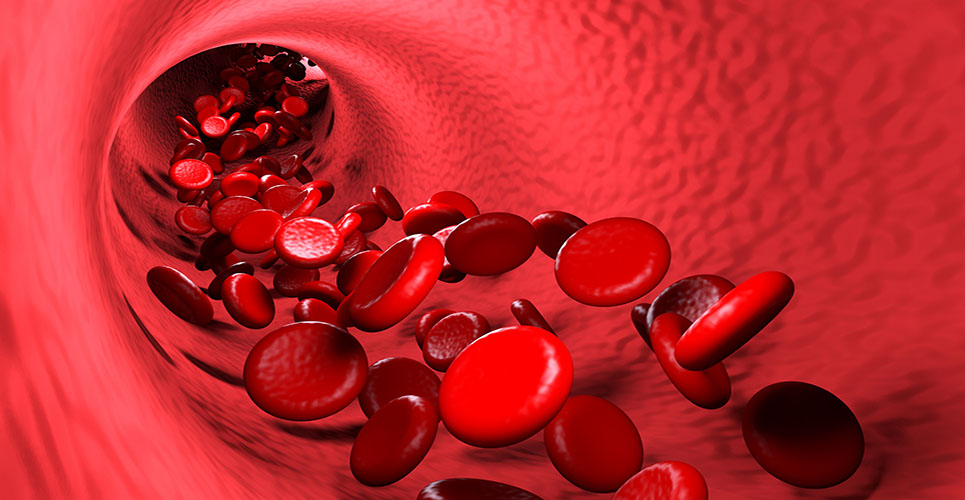The Minister for Health and Social Services in Wales ratified the positive recommendation from the All Wales Medicines Strategy Group (AWMSG) that Iclusig® (ponatinib) is a cost effective treatment option for use within its licenced indication in chronic myeloid leukaemia and Philadelphia chromosome positive acute lymphoblastic leukaemia.
The Minister for Health and Social Services in Wales ratified the positive recommendation from the All Wales Medicines Strategy Group (AWMSG) that Iclusig® (ponatinib) is a cost effective treatment option for use within its licenced indication in chronic myeloid leukaemia and Philadelphia chromosome positive acute lymphoblastic leukaemia.
The Minister for Health and Social Services in Wales has ratified the recommendation from the All Wales Medicines Strategy Group (AWMSG) to approve Iclusig® (ponatinib) as a cost effective treatment to be used in NHS Wales for the treatment of all phases of chronic myeloid leukaemia (CML) and Philadelphia chromosome positive acute lymphoblastic leukaemia (Ph+ ALL), in accordance with Iclusig’s licenced indication.
CML is a cancer of the white blood cells that is diagnosed in approximately 7000 patients each year in Europe. (1) The incidence of CML in Wales is 1.4 and 0.9 per 100,000 males and females, respectively. (2) Iclusig is a targeted cancer medicine discovered and developed at ARIAD Pharmaceuticals, Inc.

“We are delighted that the Minister has endorsed the positive AWMSG recommendation, recognising the innovative nature of Iclusig and the potential benefit it can bring to cancer patients in Wales,” said Mark Tanner, General Manager, ARIAD UK. “Our goal is to deliver innovative solutions that address gaps in care for patients who are left with few clinical treatment options. Iclusig offers a new treatment option for many of these patients.”
The approval by the AWMSG was based on results from the pivotal Phase II PACE (Ponatinib Ph+ ALL and CML Evaluation) trial in patients with CML or Ph+ ALL who were resistant or intolerant to prior tyrosine kinase inhibitor (TKI) therapy, or who had the T315I mutation of BCR-ABL. In Europe, Iclusig was approved in July 2013 for the treatment of adult patients with:
- Chronic phase, accelerated phase, or blast phase chronic myeloid leukaemia (CML) who are resistant to dasatinib or nilotinib; who are intolerant to dasatinib or nilotinib and for whom subsequent treatment with imatinib is not clinically appropriate; or who have the T315I mutation;
- Philadelphia chromosome positive acute lymphoblastic leukaemia (Ph+ ALL) who are resistant to dasatinib; who are intolerant to dasatinib and for whom subsequent treatment with imatinib is not clinically appropriate; or who have the T315I mutation.
“We welcome the ratification of the recommendation from the AWMSG for the treatment of CML and Ph+ ALL with Iclusig in all its licensed indications,” commented David Ryner, Chair of the Chronic Myeloid Leukaemia Support Group. “Although the number of patients qualifying for treatment will be limited, access to Iclusig represents an opportunity to make a significant difference to their lives. We would like to see the same opportunity made available to all other qualifying patients, no matter where they live in the UK.”
About Iclusig® (ponatinib)
Iclusig is a kinase inhibitor. The primary target for Iclusig is BCR-ABL, an abnormal tyrosine kinase that is expressed in chronic myeloid leukaemia (CML) and Philadelphia-chromosome positive acute lymphoblastic leukaemia (Ph+ ALL). Iclusig was designed using ARIAD’s computational and structure-based drug design platform specifically to inhibit the activity of BCR-ABL. Iclusig targets not only native BCR-ABL but also its isoforms that carry mutations that confer resistance to treatment, including the T315I mutation, which has been associated with resistance to other approved TKIs.
References:
- Rohrbacher M, Hasford J. Epidemiology of chronic myeloid leukaemia (CML). Best Pract Res Clin Haematol 2009;22(3):295–302. Based on current estimate of population of Europe (738,199,000 in 2010).
- Welsh Cancer Intelligence & Surveillance Unit. Cancer Incidence in Wales 2005-2009 (Annual Publication No. SA11/01). 2014. Available at: http://www.wcisu.wales.nhs.uk/sitesplus/documents/1111/incpub2011.pdf. Accessed on: April 2014.

